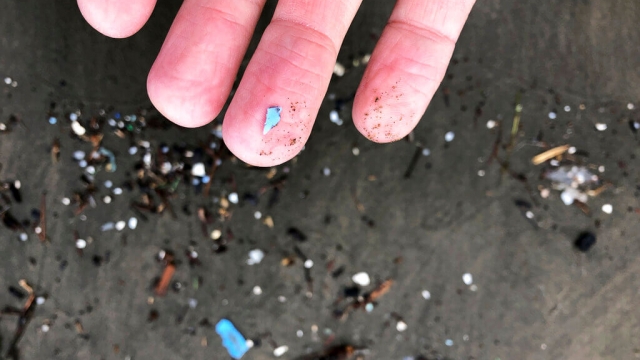Our oceans are full of plastic — an estimated 200 million metric tons, according to The Ocean Conservancy, a nonprofit dedicated to preserving oceans. And around the world, organizations large and small spend endless hours trying to keep us from making the problem worse.
Each plastic bottle, shopping bag or piece of an old toy threatens marine life and habitats. This garbage collects in floating patches in oceans around the world. The largest of them, in the Pacific, is estimated to be three times the size of France.
But it’s the tiny, microscopic plastics that could be an even bigger threat.
Everything from our car tires to our clothes can end up depositing so-called microplastics into the ocean. There, they latch onto corals, blend into marine habitats and get eaten by fish. They’re virtually impossible to remove, and they carry sometimes deadly chemicals.
Early research shows microplastics could have incredibly harmful effects on humans: lung damage, gut inflammation and autoimmune disruption. Chemicals carried with microplastics are known to cause cancer and organ damage and interfere with the human nervous and reproductive system.
SEE MORE: Starbucks plans to cut down on the plastic in its cold drink cups
Even so, we’re pumping out tons of plastic every year, and there’s so far no end in sight. Stopping the bleeding would require governments to change their policies, and that's proven hard to do.
In Ottawa, the U.N. is hosting the latest in a series of talks to establish a global plastics treaty — a potentially scale-tipping moment in the fight against plastic production. And that has some experts hopeful.
"I have never been more optimistic," said Anja Brandon, associate director of U.S. plastics policy at the Ocean Conservancy. "It took decades to get the world to come together to talk about the climate crisis to negotiate some of those first agreements. We're now seeing countries come together at a breakneck pace to try to negotiate a global treaty on plastic pollution."
"There's no going back, and that should motivate us to move quickly," Brandon said.
Trending stories at Scrippsnews.com



